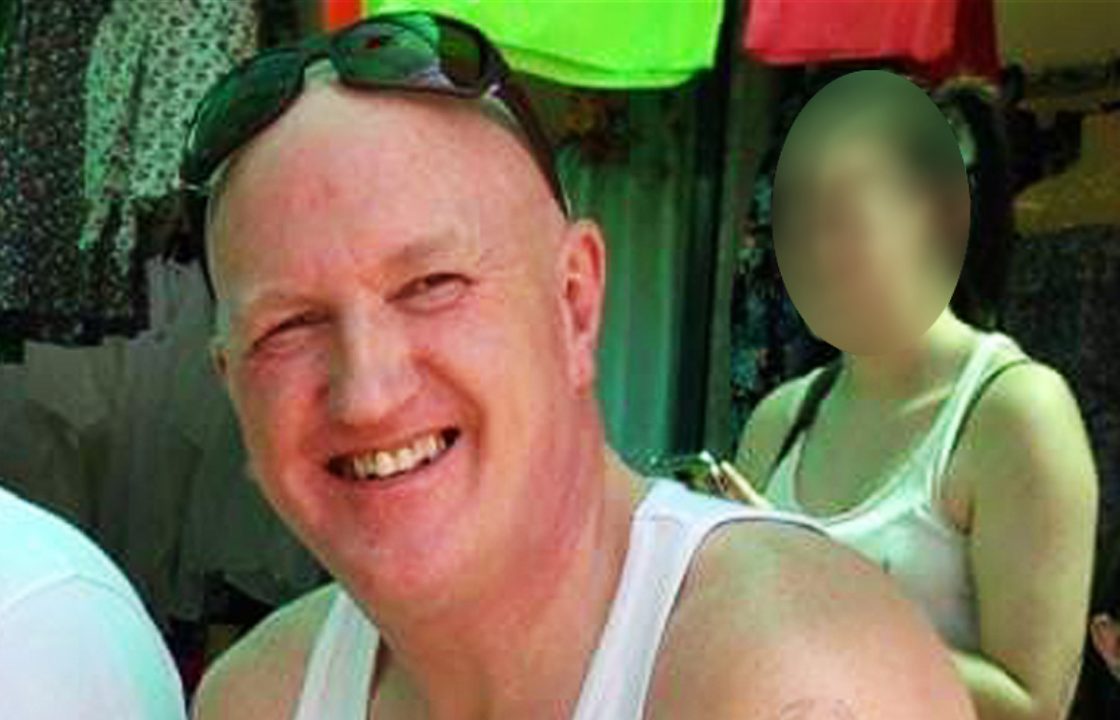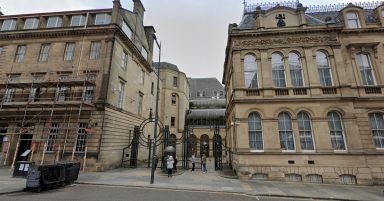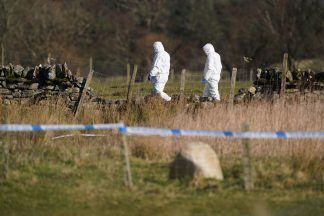An office worker died after it took an ambulance an hour and 25 minutes from the time of the first 999 call to get to his aid, a court has heard.
A first aider who battled in vain to save the man said the Scottish Ambulance Service had taken “what seemed like a lifetime” to turn up to the emergency at the height of the coronavirus pandemic.
Graham Anderson, 59, a stores co-ordinator, from Stirling, was found lying face down in the office at CalaChem, Grangemouth on May 1, 2020 .
A colleague who discovered him between 7.50 to 7.55am immediately called for assistance.
Gatehouse staff at the complex rang 999 at 7.57am and spoke to a handler at the Scottish Ambulance Service’s South Queensferry call centre.
A fatal accident inquiry heard heard that Mr Anderson was “ashen” and “clammy” and had pain in his chest and arm, but was still conscious and breathing.
On-site first responders gave oxygen and put him in the recovery position.
Three more 999 calls were made to the Scottish Ambulance Service from the CalaChem site, one at 8.34am that didn’t properly connect, another just before 8.35am, and one at 9.18am.
An ambulance didn’t arrive on the scene until 9.22am, and there was then a further wait while the crew donned PPE before attending to Mr Anderson, who was by then in cardiac arrest.
He was formally pronounced dead an hour later. His death was due to coronary atheroma and thrombosis.
Graham Malcolm, 58, one of two first responders who went to Mr Anderson’s aid, told the probe, which began at Stirling Sheriff Court on Friday, that he arrived in the stores office within minutes of being told there was a “medical emergency”.
He found Mr Anderson “obviously unwell”.
His colleague called the gatehouse to ask the Scottish Ambulance Service to attend while he administered oxygen “to try to improve the situation”.
Mr Malcolm said: “We waited quite a long time for the ambulance to attend the site. There were numerous calls to the Scottish Ambulance Service via the gatehouse and the shift operations manager’s mobile phone.”
After 30 to 35 minutes Mr Anderson appeared further unwell, and said his chest and arm pain had increased from “four or five” to “seven or eight” on a one-to-ten scale.
He then went into cardiac arrest, and Mr Malcolm and his colleague performed CPR and shocked him with an automatic defibrillator. This resuscitated Mr Anderson “for about five minutes” but he arrested again as the ambulance arrived at the gatehouse.
Mr Malcolm said he and his colleague were still trying to resuscitate Mr Anderson for a second time with chest compressions and oxygen when the ambulance crew reached the building where they were, but there was then a further wait while the crew put on coronavirus gear.
He said: “They arrived outside the stores but they didn’t come directly in.
“To be perfectly honest myself and my colleagues were a bit agitated to try and get them in to help us but they had their protocols and they had to don the correct PPE before they would enter the building and assist.”
Stuart Fraser, solicitor for Mr Anderson’s family, asked if he’d been concerned there was no sign of the ambulance arriving.
Mr Malcolm said: “Yes, very.
“Numerous calls were made to the ambulance service.
“We waited a long time. We went through two or three cylinders of oxygen. Some of our colleagues we went back to the [on site] fire station for more.
“It seemed like a lifetime.”
The inquiry heard that in the first 999 call, a member of gatehouse staff told an ambulance service call handler that Mr Anderson had “passed out”, but as he wasn’t personally with the casualty had answered “I don’t know” to follow-up questions such as; “is his breathing completely normal?” “Is he completely alert?” and “Is he changing colour?”
The call handler then phoned one of the first-responders who was with Mr Anderson directly.
The first responder told the call handler Mr Anderson was on oxygen and his colour was “coming back a bit”, had no history of heart problems, but was on medication for cholesterol.
The Scottish Ambulance Service computer system colour-coded the call as “teal” – the second lowest priority and it was “triaged as requiring additional triage”.
The first responders with Mr Anderson were told to expect a further call from the ambulance service “to get a bit more information while we work out how best to help him”.
They were also told to call back if Mr Anderson’s condition worsened – which the inquiry heard they did.
The inquiry, which is not a mandatory one, is being held on the orders of the Lord Advocate, Dorothy Bain KC, Scotland’s chief law officer, who said last year (2023) that she considered Mr Anderson’s death had “occurred in circumstances giving rise to serious public concern”.
After a day’s evidence Sheriff Keith O’Mahony, presiding, continued the inquiry to a further date.
Follow STV News on WhatsApp
Scan the QR code on your mobile device for all the latest news from around the country


 Central Scotland News Agency
Central Scotland News Agency
























